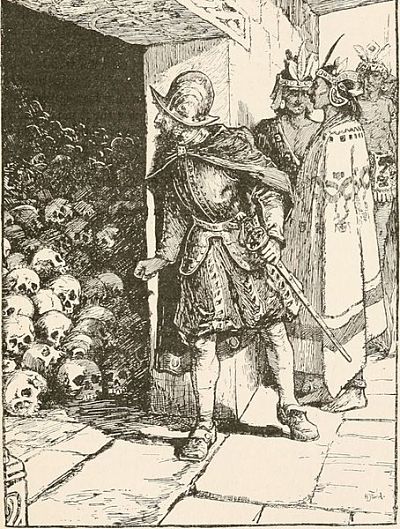
A story is powerful enough to make something false appear attractive. Just now I am listening to the soundtrack from Les Miserables and whatever the musical is teaching, I am buying. Why? The story, the music, and the performances are captivating my imagination, conquering my mind, and filling me with passion.
That is the power of story, but also the danger. Falsehoods or even wicked ideas can seem appealing set to the right score. No happiness, especially for life seems possible, after hearing I Dreamed a Dream.
In his great story Republic, Plato presents a way of looking at reality that might be true and is also captivating. His image of the soul with three parts appears in video from Star Trek (Kirk, Spock, McCoy!) to Harry Potter (Harry, Hermione, Ron). Most people using Plato do not even know that they are using Plato. I once had a discussion with a Christian school that hated “Plato” (as they understood him), but were using Platonic ideas for discerning good literature in order to ban Plato!
They were Platonists in denial.
One does not have to support government censorship to know that not all stories deserve our attention. We might have the right to tell or listen to a story, but we also have the right to say: “No.” Plato points out that for young children in particular, bad stories can corrupt a person the rest of his life. Ideas burrow into our brains and control our thinking long after we remember the storybook that teacher read to us.
Early stories should be selected to promote virtue, wisdom, and joy. Life is hard enough and the realization of how shattered the world is will come, but nobody should be eager to bring that fall from hope for himself or any other person. Virtue should always produce happiness, but people twist culture and so (at least in the short term) vice, folly, and sorrow can triumph.
Plato argues that justice makes a man happier than injustice from Republic Books I through IX, but in Book X he does something new. He tells us a story about a man who died, went to the afterlife, but then came back from the dead to tell us about life after death. Plato gives us a myth . . . not merely a false story. . . but a story that is plausible and even likely to be true.
Some fictional stories make up certain “facts,” but tell a great truth about the world. Les Miserables did not happen in history, but the power of forgiveness is real and the man who learns to love his enemy cannot be defeated. This fictional story might be more true about a certain time in French history than a textbook that contains no errors, but has a bad story.
You could list facts about Russia around the time of the Revolution or you could read the great story teller Solzhenitsyn and understand.
Plato says:
And thus, Glaucon, the tale has been saved and has not perished, and will save us if we are obedient to the word spoken; and we shall pass safely over the river of Forgetfulness and our soul will not be defiled.
Amen.
















